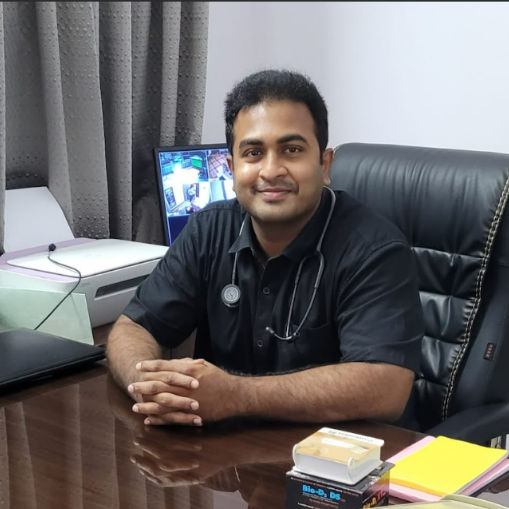Dialysis After Kidney Transplant Failure
Navigating dialysis after kidney transplant failure? Understand your options, including hemodialysis and peritoneal dialysis, managing symptoms, and the possibility of retransplantation.

Written by
Last updated on 17th Jul, 2025
_8.webp)
Introduction
A kidney transplant can be a lifechanging procedure, offering a new lease on life for those with endstage kidney disease. However, sometimes, despite the best medical care, a transplanted kidney may fail. When this happens, patients often need to return to dialysis—a treatment that helps filter waste and excess fluids from the blood when the kidneys can no longer do so.
If you or a loved one is facing this situation, it’s natural to feel overwhelmed. This article will help you understand why transplant failure happens, how dialysis can support you, and what steps you can take to manage your health effectively.
Why Does a Kidney Transplant Fail?
A kidney transplant can fail for several reasons, including:
Rejection – The body’s immune system may recognize the new kidney as foreign and attack it, even with immunosuppressant medications.
Infections – Certain infections can damage the transplanted kidney.
Medication Issues – Missing doses or improper use of antirejection drugs can lead to failure.
Recurring Disease – Some kidney diseases can return and affect the new kidney.
Blood Clots or Surgical Complications – Problems during or after surgery can sometimes cause failure.
If your transplant fails, your doctor will discuss the next steps, which often include restarting dialysis.
What Is Dialysis?
Dialysis is a medical treatment that performs the functions of healthy kidneys when they stop working. There are two main types:
Hemodialysis – Blood is filtered through a machine (dialyzer) that removes waste and extra fluids. This is usually done at a dialysis center 34 times a week.
Peritoneal Dialysis – A cleansing fluid (dialysate) is introduced into the abdomen through a catheter, which absorbs waste and is then drained out. This can often be done at home.
Your doctor will help decide which type is best for you based on your health, lifestyle, and medical history.
How Does Dialysis Help After Transplant Failure?
When a transplanted kidney fails, dialysis becomes necessary to:
Remove waste and toxins that build up in the blood.
Balance electrolytes like potassium and sodium.
Control blood pressure by removing excess fluid.
Prevent complications such as heart problems or severe swelling.
While dialysis is not a cure, it helps maintain your health until another transplant option becomes available (if suitable).
Consult Top Nephrologists
Managing Life on Dialysis After Transplant Failure
Adjusting to dialysis after a transplant failure can be emotionally and physically challenging. Here are some ways to cope:
1. Follow Your Treatment Plan Strictly
Attend all dialysis sessions as scheduled.
Take prescribed medications (especially immunosuppressants if needed).
Monitor fluid intake and dietary restrictions.
2. Eat a Kidney-Friendly Diet
Limit sodium to control blood pressure.
Reduce potassium and phosphorus (found in bananas, dairy, and processed foods).
Monitor protein intake (your doctor will advise the right amount).
3. Stay Active and Manage Stress
Gentle exercises like walking or yoga can help.
Seek emotional support through counseling or support groups.
4. Communicate with Your Healthcare Team
Report any new symptoms like fatigue, swelling, or breathing difficulties.
Discuss the possibility of another transplant if appropriate.
Can You Get Another Kidney Transplant?
In some cases, yes. If you are medically eligible, you may be placed back on the transplant waiting list. However, the process depends on:
Your overall health.
The cause of the first transplant’s failure.
Availability of a matching donor.
Your nephrologist (kidney specialist) will guide you on whether another transplant is an option.
When to Seek Help?
If you experience any of the following, contact your doctor immediately:
Severe swelling or shortness of breath.
Chest pain or irregular heartbeat.
Extreme fatigue or confusion.
Signs of infection (fever, chills).
Final Thoughts
Facing dialysis after a kidney transplant failure can be difficult, but with the right care and support, you can maintain a good quality of life. Follow your treatment plan, stay connected with your healthcare team, and take steps to keep your body as healthy as possible. If you need guidance on dialysis or exploring another transplant, Apollo 24|7 offers expert nephrology consultations and support. Book an appointment today to discuss your options and get personalized care. Remember, you are not alone—many people successfully manage their health with dialysis and go on to live fulfilling lives.
Consult Top Nephrologist
Consult Top Nephrologists

Dr. Siddharth Herur
Nephrologist
4 Years • MBBS, MD General Medicine, DM Nephrology
Kurnool
Medicover hospital and Gurudatta poly clinic, Kurnool

D. Akshay Zalavadiya
Nephrologist
3 Years • MBBS, MD, DM Nephrology
Ahmedabad
Beacon kidney consult, Ahmedabad

Dr. Anantha Rao
Nephrologist
7 Years • MBBS, DNB (General Medicine), DNB (Nephrology)
Kurnool
Aakash hospital and KIMS hospital, Kurnool

Dr. S Bipin Kumar
Nephrologist
13 Years • MBBS, MD General Medicine, DM, Nephrology
Rajamahendravaram
SG KIDNEY CARE, Rajamahendravaram
Dr Sanjai Maitra
Nephrologist
24 Years • MBBS, MD (Int. Med.), DM (Nephro)
Siliguri
Atrium Diagnostics, Siliguri
Consult Top Nephrologist

Dr. Siddharth Herur
Nephrologist
4 Years • MBBS, MD General Medicine, DM Nephrology
Kurnool
Medicover hospital and Gurudatta poly clinic, Kurnool

D. Akshay Zalavadiya
Nephrologist
3 Years • MBBS, MD, DM Nephrology
Ahmedabad
Beacon kidney consult, Ahmedabad

Dr. Anantha Rao
Nephrologist
7 Years • MBBS, DNB (General Medicine), DNB (Nephrology)
Kurnool
Aakash hospital and KIMS hospital, Kurnool

Dr. S Bipin Kumar
Nephrologist
13 Years • MBBS, MD General Medicine, DM, Nephrology
Rajamahendravaram
SG KIDNEY CARE, Rajamahendravaram
Dr Sanjai Maitra
Nephrologist
24 Years • MBBS, MD (Int. Med.), DM (Nephro)
Siliguri
Atrium Diagnostics, Siliguri
_0.webp)

_4.webp)
_10.webp)